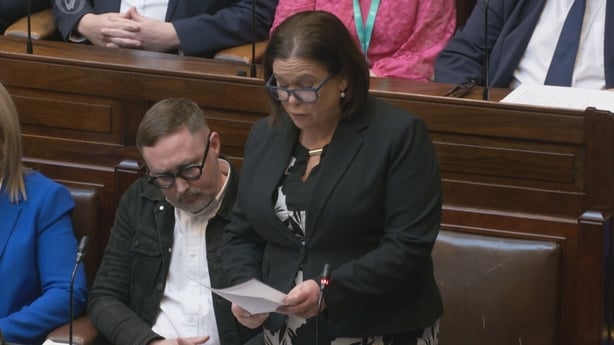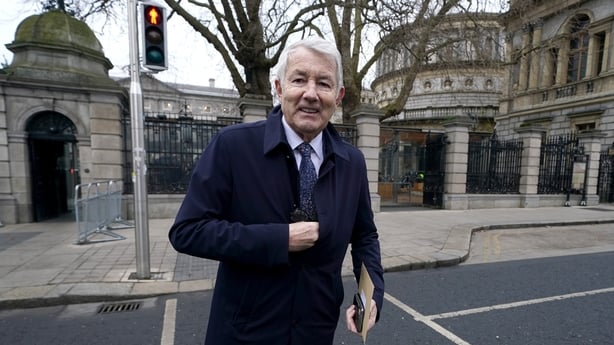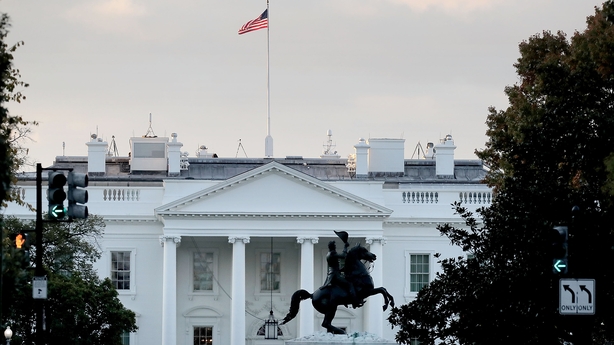What happened to the brief honeymoon that most government's enjoy?
The decisive move by Ceann Comhairle Verona Murphy on bank holiday Monday, which broke the deadlock on the Dáil speaking rights row, should have given the new coalition some breathing space.
Yet, this weekend, it feels as if this Government has yet to get into gear - hobbled by the housing crisis hangover; criticised for ministerial appointments and then blown off-course by Storm Éowyn.
The failure to speedily resolve the Dáil speaking rights row even managed to galvanise the Opposition parties into taking collective action - which takes some doing.
It is very early days, but one might legitimately wonder if this is a harbinger of bad things to come for the freshly minted coalition.
Take the announcement of the Taoiseach’s 11 nominees to the Seanad.
Micheál Martin’s surprise selection of Eileen Flynn in 2020, making her the first ever female Traveller to be a member of the Oireachtas, won many plaudits.
This time round the Taoiseach was in defensive mode before the announcement was even made, following considerable and sustained criticism of his earlier ministerial choices.

Mr Martin seemed to hand a big stick to the leaders of the three main Opposition parties - leaders who just happen to be women - to attack him.
Sinn Féin leader Mary Lou McDonald was the first to take the gilt-edged opportunity by accusing the Taoiseach of running a boy's club.
Too easy.
Yesterday, five of the six Taoiseach's nominees to the Seanad were women but the damage was already done.
The National Women's Council said, after his announcement, that it was "... deeply disappointed by lack of women in Oireachtas and government".
The Taoiseach and Tánaiste also seemed to be oblivious to how damaging the Dáil speaking row was to the new administration's reputation.
Opposition deputies from all hues were wondering aloud: what hold does Michael Lowry have over the coalition leaders?
Again, too easy.
The speaking rights row has not gone away either, with proposed amendments to the Dáil’s Standing Orders due at the end of the month.
The episode also threw up a question about the coalition’s majority in the Dáil.

Michael Lowry wrote to the Ceann Comhairle last month to say he should not be designated a government backbencher, while two of his colleagues stated they would only support the Government on a "case by case basis".
Previously Deputy Lowry had stated that he and his colleagues would support the Government in good times and bad, adding: "We’re in this for five years. We’re in it to deliver five budgets."
Two issues dominated the discussions in the Dáil on Wednesday and Thursday - and both were damaging to the Government’s reputation.
The first was housing, with Sinn Féin, Labour and the Social Democrats piling in on Micheál Martin and Simon Harris for telling the electorate last year that around 40,000 homes would be completed in 2024.
The reality turned out to be around 30,000, and so Opposition politicians claimed the Taoiseach and Tánaiste either told voters deliberately untruths or they were just totally incompetent.
It was an argument they bolstered by pointing out that the Central Statistics Office, the Central Bank and the Economic and Social Research Institute had all predicted last year that 40,000 homes would not be achieved but Fianna Fáil and Fine Gael ignored them.
Yesterday on RTÉ's Today with Claire Byrne, the Tánaiste seemed to point the finger of blame at former Housing Minister Darragh O'Brien and his officials.
He declared: "They shouldn't have given the figure", but added quickly: "... I don't doubt that the figure was given in good faith."
Worryingly for the future, Davy stockbrokers predicted this week that Ireland will need a staggering 93,000 homes a year, until 2031, to break the housing supply squeeze.
That’s more than three times greater than last year’s output and it is required for seven years in a row.
As my colleague Mícheál Lehane put it on our Your Politics podcast: this looks like a new government without new ideas.
Read More:
New government, same old housing plan
Sinn Féin accuses Govt of knowingly misleading voters on housing
The other issue to dominate Dáil debate was Storm Éowyn.
Again, the coalition was in defensive mode - preferring to talk about how lessons would be learned, rather than responding to the accusations of a substantial failure to plan.
It is absolutely true to say that what happened was unprecedented, but it is harder to argue that such a storm could not have been predicted given 20 years of dire warnings about impending destructive climate change.
And barrelling towards us in short order is the possibility of a trade war with the United States - the country we had a €317bn economic relationship with in 2023.
Trade is an EU competence, and so Brussels will take the lead in any negotiations. However, the Irish-US relationship is under additional strain due to Israel’s war in Gaza.

Opposition politicians here are already asking the Taoiseach to reconsider going to Washington DC for the annual St Patrick’s Day celebrations given what they describe as Israel’s genocide in Gaza and President Trump’s plan for ethnic cleansing of its population.
It places Micheál Martin on the horns of a dilemma - engaging with President Trump could yield vital information about what tariffs might be coming and help formulate a response to protect our economy.
And yet getting cosy with President Trump could have negative consequences which will endure for Micheál Martin’s second tenure as Taoiseach.
It reminds me of what the former leader of the Progressive Democrats Mary Harney once opined: "The worst day in Government is still better than the best day in Opposition."
It was regarded by many at the time as sage advice.
It is a maxim which is about to be seriously tested.







